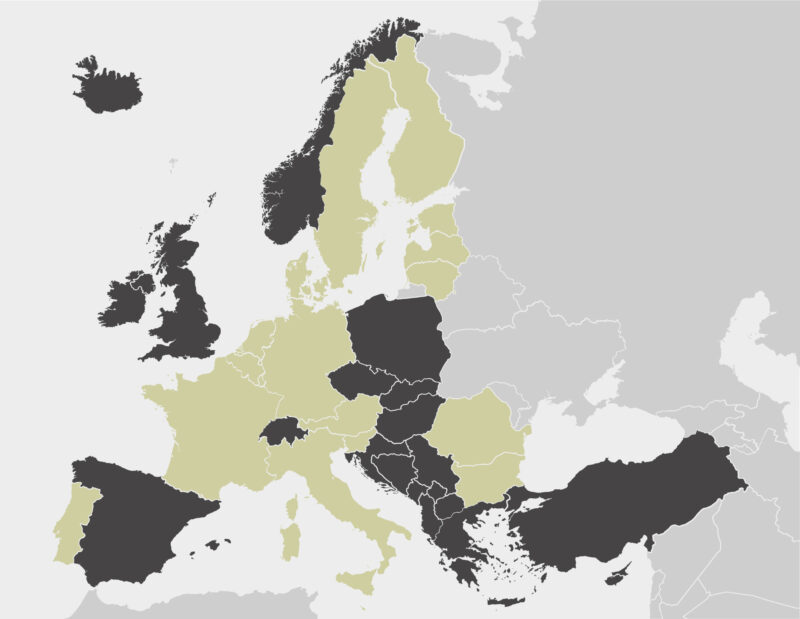The Unified Patent Court (UPC) is a relatively fresh supranational court common to the EU Member States for which the Agreement on the Unified Patent Court is in force.
The Members States are: Austria, Belgium, Bulgaria, Cyprus, Czech Republic, Germany, Denmark, Estonia, Finland, France, Greece, Hungary, Ireland, Italy, Lithuania, Luxembourg, Latvia, Malta, Netherlands, Portugal, Romania, Sweden, Slovenia, Slovakia.
18 out of the 24 UPC member states have ratified the Agreement of the Unified Patent Court (UPCA):
 Austria, Belgium, Bulgaria, Germany, Denmark, Estonia, Finland, France, Italy, Lithuania, Luxembourg, Latvia, Malta, Netherlands, Portugal, Romania (as per 1 September 2024), Sweden, Slovenia
Austria, Belgium, Bulgaria, Germany, Denmark, Estonia, Finland, France, Italy, Lithuania, Luxembourg, Latvia, Malta, Netherlands, Portugal, Romania (as per 1 September 2024), Sweden, Slovenia
The UPC offers a uniform, highly specialised and fast-moving venue for patent litigation at a European level. The court accepts both infringement and revocation actions. The Court has exclusive jurisdiction in respect of “classic” European patents and European patents with unitary effect (Unitary Patents).
The exclusive jurisdiction regarding “classic” European patents is, however, subject to exceptions during a transitional period of seven years. During this period, actions concerning “classic” European patents may still be brought before national courts or other competent national authorities. Furthermore, “classic” European patents may be opted out entirely from the jurisdiction Unitary Patent Court.
Read more about the UPC and Unitary Patent here.








